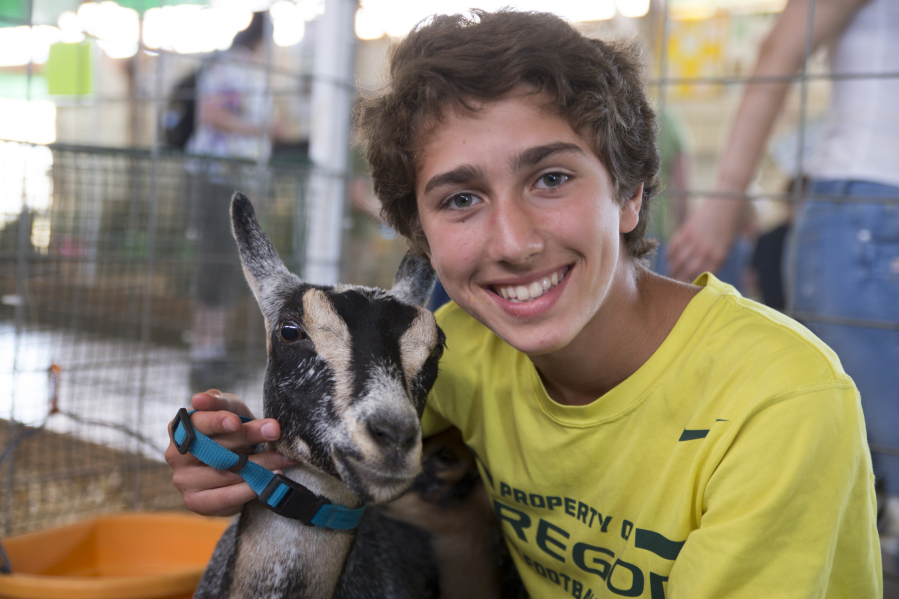RIDGEFIELD — Steven Schmidt earned a blue ribbon for his mozzarella cheese Saturday at the Clark County Fair.
In the barn just a few yards away, Twilight and Chryssy could take pride in their contributions to the prize: goat milk.
Schmidt is a member of Goating Around and brought several goats to the 4-H competition. In a side gig, the 14-year-old from Battle Ground also competed in the dairy goat cheese contest, using milk from his Alpines and Nigerians.
His mozzarella was entered in the “not aged” category, and boy, was that ever an accurate description.
If You Go
What: Clark County Fair.
Hours today: 10 a.m. to 10 p.m.
Where: 17402 N.E. Delfel Road.
Admission: Adults, $11.25; seniors 62 and older, $9.25; kids 7-12, $8.25; kids 6 and younger, free.
Parking and transportation: Parking, $6 per vehicle; C-Tran shuttle, free from six main transfer stations; $1 discount on full gate admission with coupon from bus driver. Schedules at www.c-tran.com/clarkcountyfair
Carnival: Opens at noon.
ERS Free Grandstand: The B-52s, 7 p.m.
Pets: Not permitted, except for service animals or those on exhibit or in competition.
More information: www.clarkcofair.com or call 360-397-6180.
“I made it this morning,” Schmidt said just ahead of the 1 p.m. judging. It actually doesn’t take long to turn three gallons of milk into three pounds of cheese.
“It’s easy, quick, and you don’t have to wait to age it,” he said.
And it’s great on pizza.
Mary Rosenblum, the longtime judge of the Clark County Goat Association event, said that homemade mozzarella isn’t even the most time-consuming part when she cooks pizza from scratch.
“I’ll make the mozzarella while the pizza dough is rising,” Rosenblum said.
As far as Schmidt’s blue-ribbon cheese went, “It’s got a really nice stretch. That’s the nicest piece of goat mozzarella I’ve seen in a long time,” Rosenblum judged.
Schmidt has been involved in 4-H for about four years, he said. He added cheesemaking a couple of years ago when his mom, Lisa Schmidt, “saw a video on making mozzarella,” he said.
Schmidt’s two varieties of 4-H goats bring different things to the table, as far as milk production goes.
“Alpines produce 28 to 40 cups a day,” Schmidt said, with Chryssy a top milker.
Twilight is the top-producing Nigerian, at 10 to 12 cups a day.
“Nigerians produce a more creamy, sweet milk,” Schmidt said. “Alpines’ milk is thin, but there’s more of it.”
In the cream cheese event, Glenna Bowman of Vancouver earned two blue ribbons with another quick turnaround. She made her entries at 2 a.m. Saturday, the Vancouver woman said.
There also were cheeses that have been around a bit longer. One category was for cheeses that have been aged more than 60 days and another was for mold-ripened varieties such as blue and Brie.
They all are answers to a question farmers have faced since they started milking livestock, Rosenblum said.
“How do they store and preserve milk without refrigeration? People preserve food with salt, with acid and by drying,” Rosenblum said. “All three are used in making cheese.”




